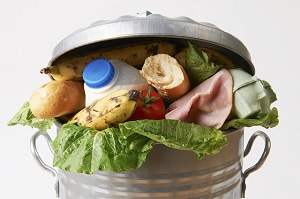Food academics to help support innovation to tackle fruit and veg waste
21 January 2020

Helping farmers and food processors to reduce fruit and veg waste is one of a number of challenges that a new network of universities and businesses will tackle.
The Quality and Food Loss Network for Horticulture has received £500k of funding from BBSRC to support innovation in the horticultural crop industry, which contributes more than £4 bn to the UK economy.
In particular, the team will bring together the best UK scientists with horticultural business and policy partners to address issues around avoidable waste where fresh fruit, vegetables and potatoes accounts for 1.2 million tonnes per year and is by far the biggest category of food wasted.
The team will be commissioning new innovation in research, including ways to extend the shelf life and quality of fresh produce, to grow crops more resilient to disease, and ways to ensure fruit and veg are more uniform and adapted to labour-saving technology.
Professor Carol Wagstaff, University of Reading said:
“The sad fact is that fruit and vegetable waste accounts for the largest proportion of all food not being eaten in the UK. Fruit and veg is a major component in a healthy diet so this new funding is a helpful boost to support research to ensure that more of the food we grow ends up being consumed.”
“The aim of the proposed Quality and Food Loss Network for Horticulture is to act as the leading collective voice for the UK horticultural and postharvest research community. We look forward to working alongside a really wide range of researchers in innovative areas as well as policy makers and industrial partners to help them turn research into benefits for consumers.”
Professor Leon Terry, Director of Environment and Agrifood at Cranfield University added:
“Cranfield University has a long history of reducing postharvest food losses and as such we are delighted to be leading this network with UKRI and University of Reading. The Network will allow us to better harness our national scientific talent to help achieve Sustainable Development Goal 12.3 to halve per capita global food waste and reduce food losses.”
Preventing food loss
The Horticulture Quality and Food Loss Network will provide a focal point for industrial and academic practitioners to work together to develop new solutions to improve horticultural crop quality and prevent food loss.
The Network will provide pilot-scale research funding to develop partnerships that can go on to win higher value funding that makes a step change difference to the sector. The Network will facilitate the development of collaborations between business and academia, and of academics from different disciplines.
It will have some funding ring-fenced for early career researchers, ensuring that there is a legacy of people developing high quality research in this area, as well as individual projects that will subsequently mature into long term solutions for the sector.
The Network will be closely engaged with government policy makers and advisory bodies to ensure that information flow is two way. Researchers and businesses will be supported to understand the environmental and economic consequences of food loss and quality enhancement, and the network will provide resources for policy makers understand the benefits of supporting this sector for the economy, environment and public health.
Karen Lewis, Executive Director of Innovation at BBSRC said:
“Bioscientists in the UK and around the world can play a vital role in meeting the challenge of cutting food waste. Through this new network BBSRC will link science and business to propose and analyse new approaches to tackle this key issue. Its outputs will be part of a global effort to address food security.”
Amanda Collis, Executive Director of Science at BBSRC added:
“The BBSRC Quality and Food Loss Network is a great opportunity to bring together the academic and industrial horticulture communities. The network will provide leadership to tackle an issue which is central to achieving the UN Sustainable Development Goals, by reducing food loss through improving horticultural crop quality. Research to reduce pre-consumer food waste will be essential to improving the productivity and resilience of the UK food system. The outputs of this network will advance BBSRC’s mission to enhance food security while strengthening the agri-economy.”
